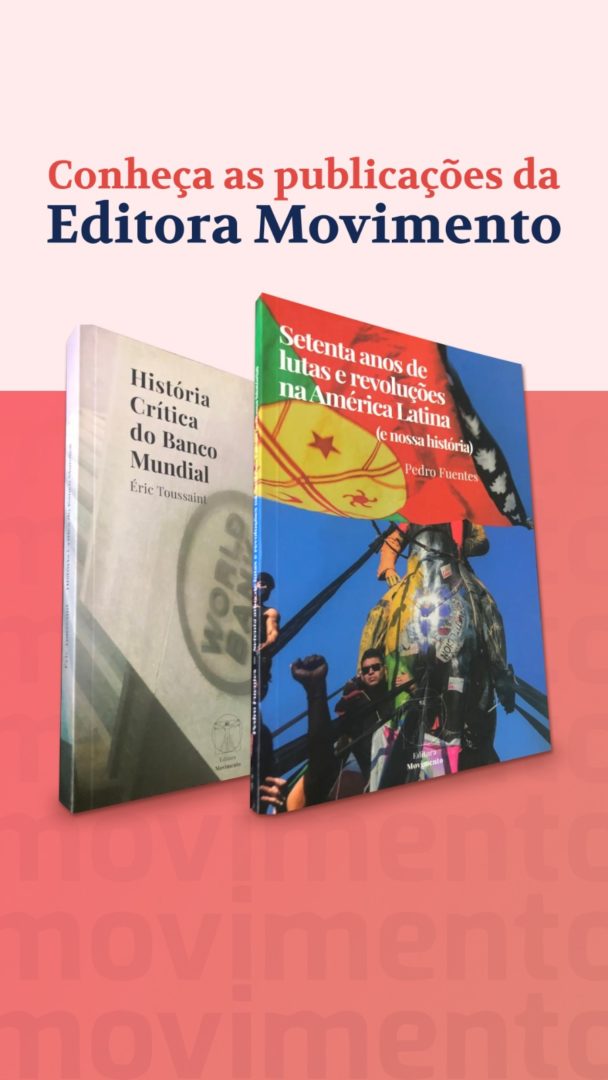Where is the government going?
Lula intends to conclude the ministerial reform, making an “organic” agreement with the center-right, and to consolidate Haddad as an operator of social-liberalism.
In the coming weeks, Lula intends to complete the ministerial reform and implement a new phase of the government: politically, to “organically” reach an agreement with Lira (president of the Chamber of Deputies and Bolsonaro’s ally during his government) and the center-right; economically, to consolidate Haddad’s role as an operator of social liberalism based on the approval of the new austerity policy and the tax reform.
The far-right entrenches itself in the CPI (Parliamentary Commission of Inquiry) of the MST (Landless Workers’ Movement), in which we highlight the resistance and combativeness of Samia Bonfim who, together with Fernanda Melchionna, has demonstrated how to carry out a parliamentary struggle against Bolsonarism. The government, in turn, does not take advantage of Bolsonaro’s defensive position to confront and further weaken this sector. Instead, it has signaled a potential alliance with the PP and the Republicans (bolsonarists parties) as a way to ensure supposed “governability”.
In the face of the shift towards the center-right parties, consolidated by the inclusion of the PP and the Republicans in the government, it is more important than ever to strengthen the independent pole. This is the challenge for PSOL (Socialism and Liberty Party).
An economic policy to suit the bankers
The Lula government, through the economic team led by Fernando Haddad, has advanced two measures ordered by financial capital, the so-called “Faria Lima” (avenue of são paulo which concentrates important financial companies): the approval of the new austerity policy and the tax reform. A post-approval survey of the tax reform, which was comfortably passed, indicates that confidence in Haddad among financial capital agents has reached 65%.
The tax reform, supported by FIESP (Federation of Industries of the State of São Paulo), did not change Brazil’s regressive tax structure, in addition to exempting exports and inputs to agribusiness, including pesticides, properties and businesses linked to large evangelical churches, passing the final burden onto the consumer. Our position, manifested in the abstention of our deputies, can be read in the note from the Secretariat of the MES regarding the tax reform vote. Another announced measure was the largest “Safra Plan” ever presented for Brazilian agribusiness, even celebrated by more hostile sectors to the government, allocating a much smaller portion for family and sustainable agriculture.
The fiscal-oriented nature of Haddad’s management finds resonance in other programs planned for the second semester, such as the plan to stimulate Public-Private Partnerships (PPPs), including, as announced, for the construction of new prison units; and the tightening of the Fiscal Responsibility Law for states and cities. Such measures fit within the parameters of the new austerity policy, which unified most of the bourgeoisie with Haddad’s plans.
The alliance with Lira and the government with the center-right
On the political front, the government’s shift involves an even more organic relationship with the center-right. In addition to the appointment of Celso Sabino (União Brasil-PA, bolsonarist party) to the Ministry of Tourism, negotiations continue for the entry of the PP and Republicans into strategic ministries. The dispute is about who will leave: speculation suggests the handover of the Ministry of Social Development, responsible for the Bolsa Família program, the Ministry of Sports, led by Ana Moser, an appointment from the athletes’ and former athletes’ movement that collaborated with the transition, and even the Ministry of Science and Technology, currently held by the PCdoB, after years of destruction.
During the first months of management, the government sought to get closer to Lira and the center-right. The government’s parliamentary bloc voted for Lira without hesitation for the presidency of the Chamber of Deputies. The same Lira guaranteed the approval of the austerity policy and tax reform, following the distribution of billions in parliamentary amendments. Now, the next step is for the center-right to officially enter the government, requesting ministries and control over state-owned enterprises. Smoothing this path, the STF (Supreme Federal Court), through Gilmar Mendes, archived the proceedings that were ongoing against Lira in the state of Alagoas. Clear signals are also being sent for the distribution of positions in autonomous agencies and state-owned enterprises to the most physiological sectors, many of which held positions in the Temer and Bolsonaro governments.
“Co-opting Bolsonarism” or confronting and crushing the far-right?
The government’s strategy to seek “governability” was summed up by the government leader in the Chamber of Deputies, José Guimarães (PT-CE), in an interview with Folha de S. Paulo (news paper) in which he normalizes negotiations with parties that were part of the Bolsonaro government and whose parliamentary blocs contain a significant portion of the bolsonarist far-right.
We have a different perspective: to ensure the success of the government and confront the far-right, it is necessary to use Bolsonaro’s ineligibility to further weaken Bolsonaro and the coup-plotters, isolating and politically defeating the far-right. Therefore, we defend the political independence of PSOL – as we have demonstrated through the actions of our deputies or the youth during the last UNE’s Congress. Defending this position and the necessary fight against the far-right will be fundamental tasks of the VIII PSOL Congress.
Israel Dutra is a sociologist, General Secretary of PSOL, member of the party’s National Directorate, and of the Movimento Esquerda Socialista (MES/PSOL).
Thiago Aguiar holds a Ph.D. in Sociology (USP).






















































